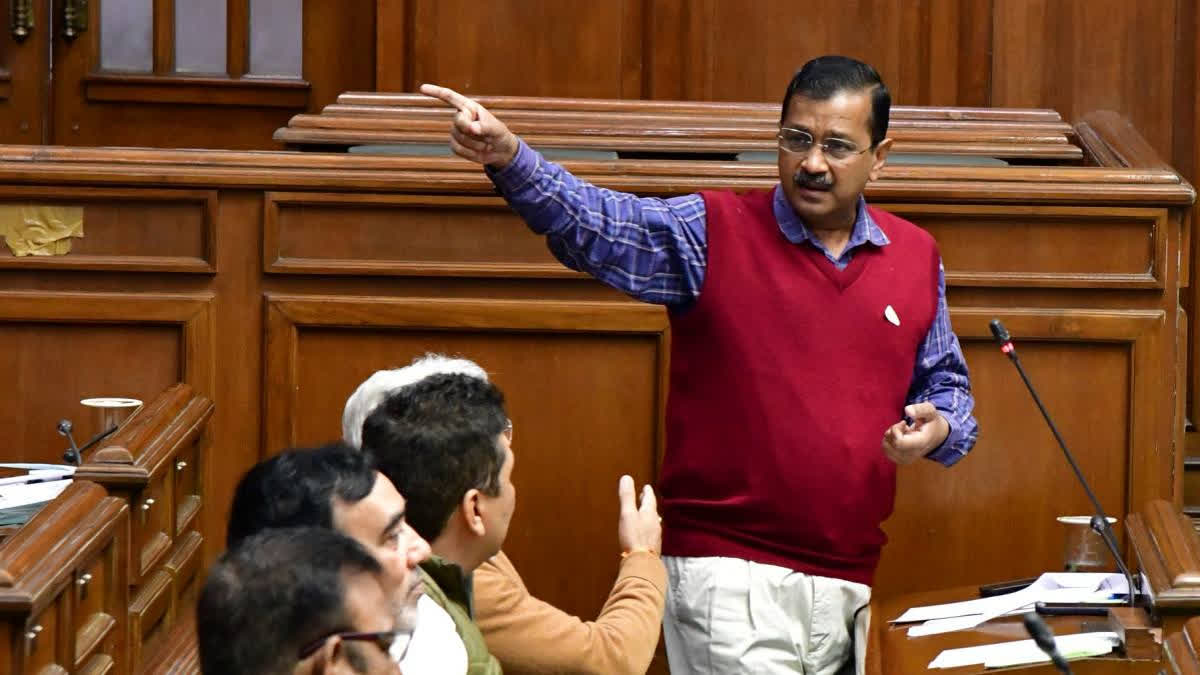New Delhi: Delhi Chief Minister and Aam Aadmi Party chief Arvind Kejriwal on Wednesday moved the Supreme Court against the Delhi High Court order rejecting his plea challenging his arrest in a money laundering case linked to the now-scrapped Delhi excise policy.
Kejriwal’s counsel will mention the matter before a bench headed by Chief Justice of India DY Chandrachud seeking an urgent hearing on the plea. In a setback to Delhi Chief Minister Arvind Kejriwal, the Delhi High Court on Tuesday dismissed his petition challenging his arrest in a money laundering case stemming from the alleged excise scam, saying there was no contravention of legal provisions.
Besides his arrest, Kejriwal, who is currently in judicial custody in Tihar jail, had also challenged his subsequent remand in Enforcement Directorate's custody, which the court said was not illegal.
Justice Swarana Kanta Sharma said the Enforcement Directorate was in possession of "enough material" which led to Kejriwal's arrest, and the trial court remanded him in the custody of the agency by a well-reasoned order.
"The court is of the view that the arrest of Arvind Kejriwal was not in contravention of legal provisions. The remand can't be held to be illegal," said Justice Sharma while delivering the verdict.
The high court had chastised the Aam Aadmi Party (AAP) leader, who was claimed to be involved in money laundering in his "personal capacity" and in his capacity as the national convenor of the political party, for questioning the timing of his arrest and underlined that an investigation against the "classes and masses" cannot be different.
The matter pertains to alleged corruption and money laundering in formulating and executing the Delhi government's excise policy for 2021-22 that was later scrapped. Kejriwal was arrested by the ED on March 21, hours after the high court refused to grant him protection from coercive action by the federal anti-money laundering agency. He was sent to judicial custody in the case on April 1 after he was produced in the trial court on expiry of ED custody.



